Jewelry Allergy: Expert Care for Beautiful Skin”
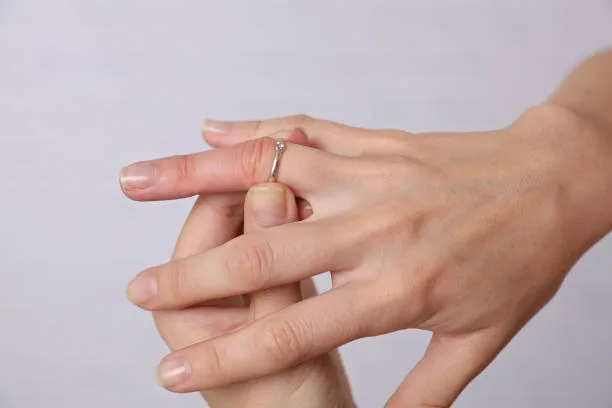
Hi friends, today we will discuss “Jewelry Allergy: Expert Care for Beautiful Skin”.
Embracing the tradition of jewelry has taken a modern twist, with accessorizing synthetic pieces and diverse styles.
However, underneath the glitter, it’s important to tread carefully to protect your skin from the potential challenges associated with artificial jewelry.
Hidden dangers:
While synthetic bangles and earrings may catch the eye, the quality of metals and plastics used can bring unexpected challenges to your skin health. Skin concerns such as red/black/blue discoloration, acne, and infections can emerge, prompting us to reconsider the true value of our accessories.
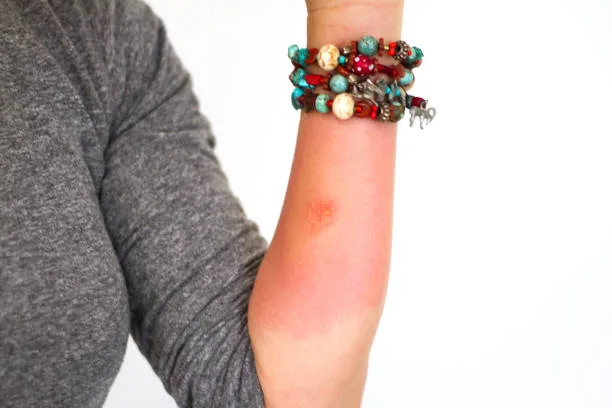
Artificial ornaments and their effect on the skin
Artificial bangles, rings, earrings, neck chains, and ear and nose studs can please our eyes due to their bright colors and striking look. But, have you ever thought of what if the jewelry doesn’t suit you? If you are allergic to artificial jewellery you may suffer from a burning sensation if the jewellery comes in contact with your body.
Furthermore, it can also cause itching, bleeding, pus discharge, and so on. As per Dermatologist, “Blisters boils, red/black/ blue discoloration, acne, and infections can also be seen.”
Exposure to Nickel Allergy:
Nickel, a frequent element in many jewelry pieces, has a reputation for triggering allergies. Continued exposure can sensitize the immune system, leading to painful symptoms. Doctors emphasize understanding one’s skin type, especially for those with conditions like eczema or dermatitis, emphasizing caution in choosing jewelry.
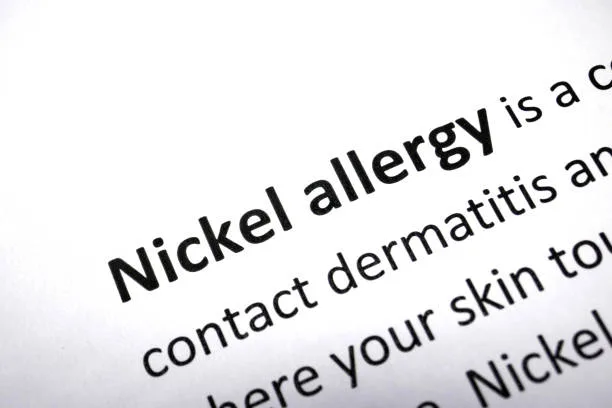
You can be allergic to nickel in jewelry
Nickel is used in jewelry, coins, belt buckles, keys, and so on. Your immune system will be always sensitive once your body develops a reaction to a particular allergen nickel.
After your first exposure or after repeated or prolonged exposure your immune system can develop sensitivity towards nickel.
After wearing the earrings if your ears experience a burning sensation or if you suffer from rashes or boils around your neck, then you may be allergic to nickel.
Your skin may swell and you may also get dry patches. Your skin may become darker and leathery if you don’t treat it at the right time.
Jewelry allergy symptoms
You should realize if your allergy is due to nickel or some other triggers like food items and weather changes. Generally, you will be able to see the signs of jewelry allergy within 12 to 48 hours. The symptoms that you might observe on your skin are:
Redness or rash
Itching and irritation
Dry spots
Swelling
Blisters
Sweating (It can make the allergy worse)
Pus
Would you like to read:https://drreactivate.com/why-do-skin-allergies-occur-in-winter/
Dealing with allergic reactions:
When symptoms develop, quick action is essential. Seeking medical advice, dermatologists can perform allergy tests to identify triggers. Over-the-counter creams can provide relief, but moderation is key to avoiding over-reliance. Additionally, adding a moisturizing routine with a quality barrier cream protects and protects the skin from dryness.
Jewelry allergy treatment
What to do if your skin has already caught the allergy and there is no turning back? Here is the answer. There are certain precautions and home remedies that can be helpful in such cases. Although, if the allergy stays for too long and even gets worse, you should see a dermatologist immediately. Here are the ways to treat nickel allergy:
1 . Use plastic or leather
As soon as you diagnose that you have an allergy to nickel, the first step should be avoiding it. Buy leather or plastic watchbands, and plastic eyeglass frames and switch to plastic or leather-coated items rather than metal.
2. Moisturize regularly
Apply moisturizer or soothing lotions to the allergic part of your skin. Calamine lotions might help in keeping the dry patches wet and reduce the itching on your rash. If your skin has a protective layer of a lotion then it will be difficult for external items to cause infection.
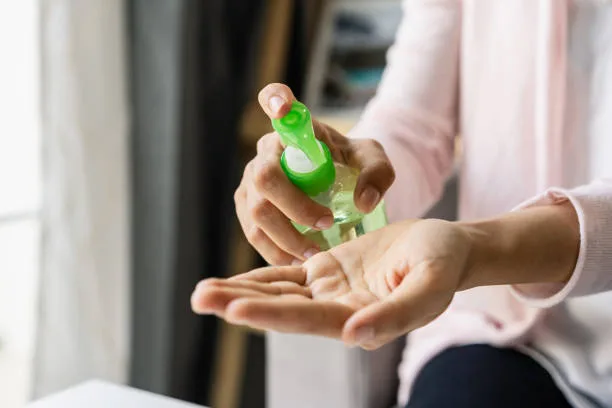
3. Apply aloe vera
Aloe Vera is a tested astringent in treating many skin allergies. The antioxidants present in aloe Vera have healing and curing powers. Aloe vera protects your skin from allergies and also makes it smooth and soft.
4. Avoid nickel-rich food items
Food items like chocolates and nuts are rich source of nickel. If you are extremely sensitive to the element, then you should avoid consuming those edibles too. You will make your allergy worse if you do so.
would you like to read:https://drreactivate.com/olive-oil-for-massage-10-benefits/
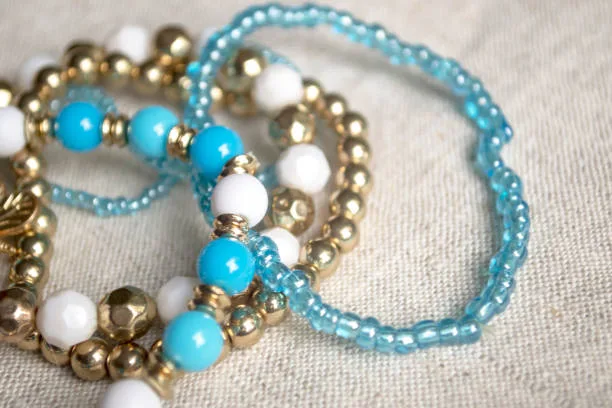
5. Avoid/change your jewelry
Firstly, if you know that you caught an allergy because of wearing jewelry like rings, necklaces, bracelets, etc, then avoid wearing those. However, if it’s necessary to wear something daily then get it changed by your jeweller and ask him to give a less reactive metal like platinum.
6. Consult a doctor
Jewelry allergy should be recognized and treated wisely on time, as it can get worse and turn into pus-filled blisters if you keep direct skin contact with metal. A skin specialist will tell you to get a skin patch test to check your skin’s reaction to nickel. You should visit a dermatologist if you are facing any kind of skin allergies.
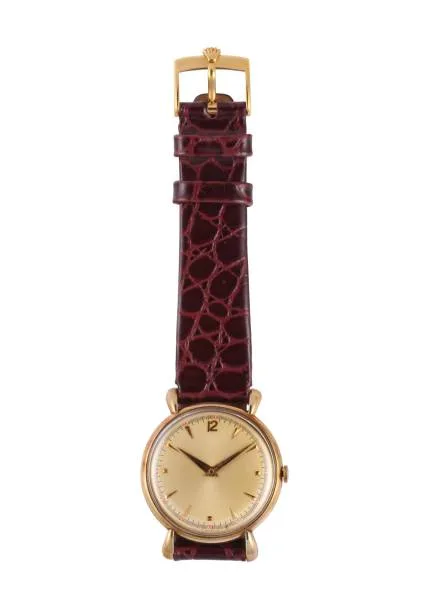
Choosing wisely:
For jewelry enthusiasts, the pursuit of beauty doesn’t have to compromise skin health. Choosing high-karat gold, surgical-grade stainless steel, silver or platinum provides a haven for those prone to allergic reactions, as these metals are less likely to irritate the skin.
It is important to be aware of specific metal sensitivities and choose hypoallergenic materials when making or purchasing jewelry. In addition to choosing the right materials, regular cleaning and maintenance of your jewelry can prevent potential irritation from accumulating.
Additionally, removing nickel-containing items from your wardrobe, including bra straps and watches, is a proactive step to prevent skin irritation, as nickel is a common culprit of allergic reactions. Investing in quality pieces and being mindful of the materials used in your accessories can contribute to both aesthetic satisfaction and long-term skin health.
conclusion
In the delicate dance between nutrition and skin health, awareness becomes our greatest ally. While the appeal of synthetic jewelry is undeniable, it’s important to make informed choices that prioritize the health of your skin.
By carefully navigating the world of jewelry and choosing pieces that match your skin’s unique needs, you can enjoy the beauty of self-expression without compromising your well-being.
Although jewelry allergies can be annoying, they are manageable with proper care and attention. Choosing hypoallergenic materials, regular cleaning, and applying simple home remedies can significantly reduce the risk of allergic reactions.
If symptoms persist or worsen, it is important to consult a dermatologist for professional guidance. By taking proactive steps, you can continue to enjoy the beauty of jewelry without compromising the health of your skin.
FAQs
What materials are recommended for individuals prone to allergic reactions?
High-karat gold, surgical-grade stainless steel, silver, and platinum are excellent choices as they are less likely to cause skin irritation.
Why is it important to be aware of specific metal sensitivities when choosing jewelry?
Being aware of metal sensitivities helps in selecting hypoallergenic materials, ensuring a safe and comfortable experience for those with skin sensitivities.
How can I maintain my jewelry to prevent skin irritation?
Regularly cleaning and maintaining your jewelry is crucial to prevent the accumulation of potential irritants and to keep your accessories in optimal condition.
What proactive steps can I take to prevent skin irritation caused by nickel?
Removing nickel-containing items from your wardrobe, such as bra straps and watches, is a proactive measure as nickel is a common culprit for allergic reactions.
Are there other materials to avoid for sensitive skin?
Yes, in addition to nickel, certain alloys and base metals may cause skin irritation. It’s advisable to choose jewelry made from high-quality and hypoallergenic materials.
How can I identify quality jewelry pieces?
Quality pieces often come with proper markings indicating the metal content. Additionally, purchasing from reputable jewelers and brands known for their craftsmanship ensures the use of high-quality materials.
Can poor-quality jewelry cause long-term skin issues?
Yes, jewelry made from low-quality materials may lead to prolonged skin irritation and other skin-related problems. Investing in quality pieces contributes to both aesthetic satisfaction and long-term skin well-being.
Is there a specific cleaning routine for different types of jewelry materials?
Yes, each material may require a specific cleaning method. It’s recommended to follow care instructions provided by the jeweler or opt for professional cleaning services when necessary.
How can I identify if a piece of jewelry is hypoallergenic?
Look for jewelry labeled as hypoallergenic or made from materials like titanium, niobium, or palladium, known for their hypoallergenic properties.
What should I do if I experience skin irritation despite choosing hypoallergenic materials?
Consult with a dermatologist to identify specific allergies or sensitivities and consider conducting patch tests before purchasing new jewelry.

